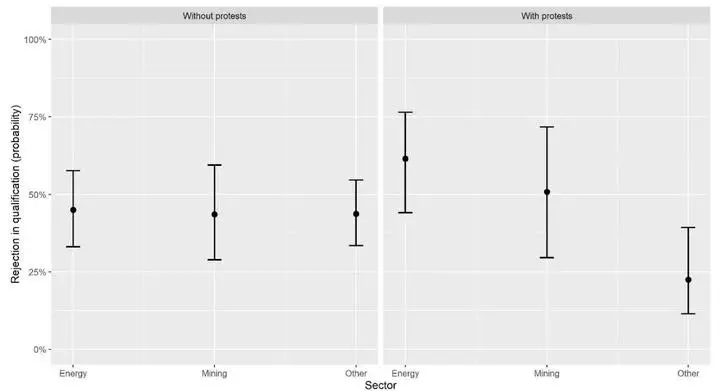Examining the effects of social protest on the environmental impact assessment process in Chile

Abstract
The presence of social conflicts in environmental impact assessment (EIA) is well recognized. However, it remains unclear how social conflicts impact the EIA process beyond specific case study or the examination of small samples. This article addresses this issue through a quantitative analysis of the projects submitted for EIA in Chile between 2009 and 2019, unpacking how the presence of social protest affects the qualification granted by public services and the time elapsed between when the project is presented and finally receives qualification. Our results suggest that social protests have a significant effect on the time elapsed before receiving qualification, particularly for smaller projects. Following an extensive review of the literature and public documents, it is likely that social protest usually operates alongside observations raised by local communities during public consultation, and consequently, projects take longer in addressing those observations. In addition, our results suggest that the presence of social protest does not influence the qualification of the project. However, there is a relationship when social protest is examined in interaction to the productive sector, in which energy projects that face social protest are more likely to be rejected compared to mining or other economic sectors.